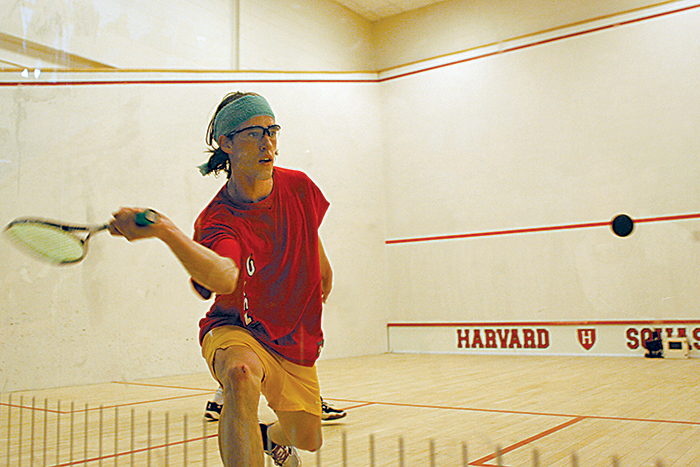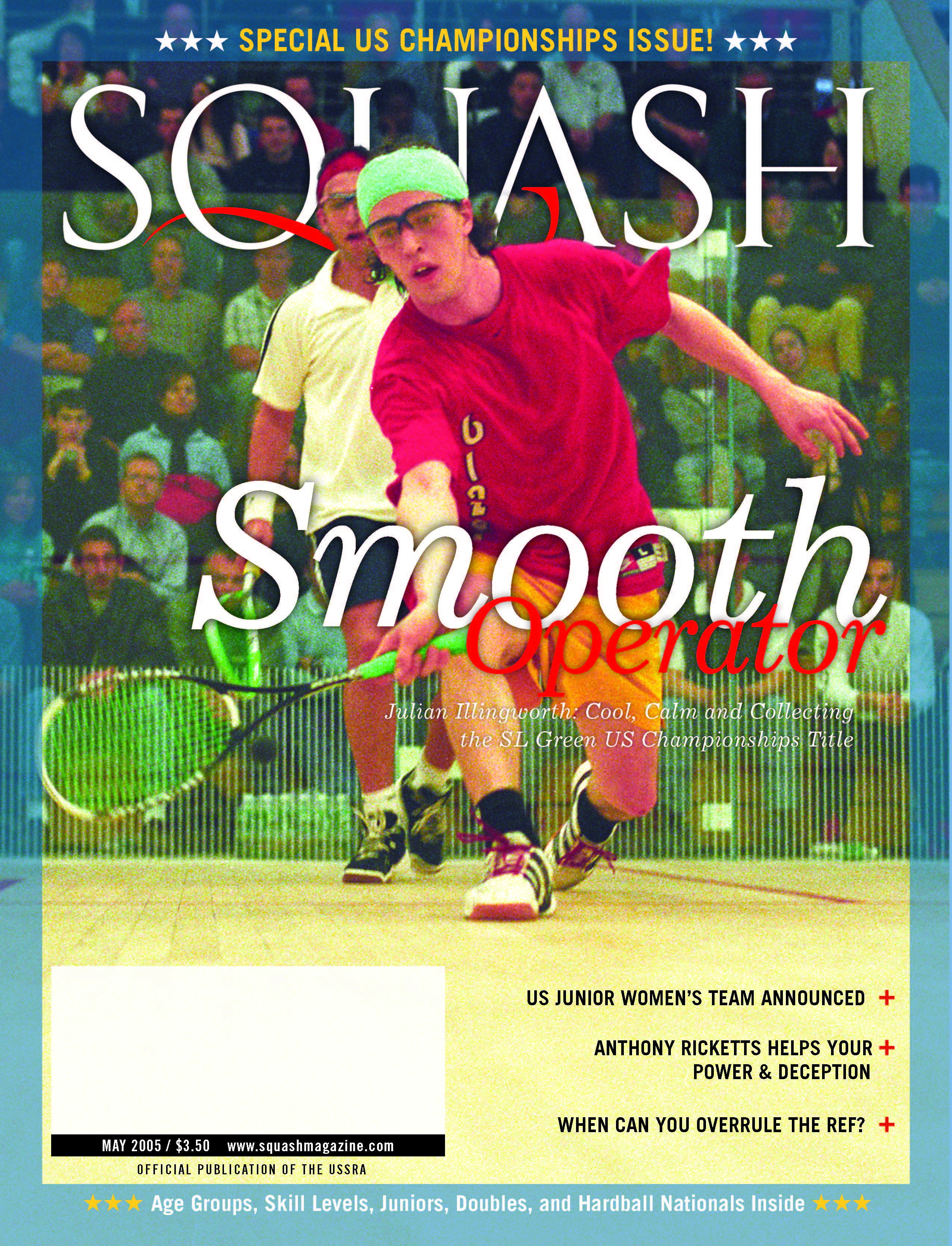
By Jay D. Prince (From Squash Magazine, May 2005)
Let’s say you’re born with athletic genes to English parents and you live in the western United States. As you’re growing up, your interests draw you to two sports that most would consider to be relatively obscure—unless you actually lived in England. You take a liking to soccer and your dad gets you started in squash. You love to play both and, as luck would have it, your genetics kick in to give you a body that cooperates: long legs, excellent hand-eye coordination, and gazelle-like movement.
Over time your soccer skills develop and you become an outstanding center midfielder. Your team finishes in the top three nearly every year. By the time you get to high school, you’re among the elite on the all-city team in Portland, Oregon, and the state slaps third-team all-state on your back. But when you’re not blanketing the soccer pitch, Khalid Mir has taken you under his wing at the Multnomah Athletic Club and your squash skills develop to the point of being competitive at the national junior level.
In the U14 (back when the division existed), you make the journey eastward and take a shot in the Junior Olympics (when it was still called that) and the Junior Closed Nationals. Few knew who you were. After all, the Pacific Northwest is hardly part of the country in the eyes of most junior squash players. So you quietly show up, quietly go deep in the draw, and quietly slip out the door to fly home.
By the time your junior career is over, Portland is on the junior squash map and you’ve won several National titles in the U17 and U19, in both the Closed and Junior Olympics (now the US Junior Open). You trade in those soccer cleats prior to entering college, giving squash a fulltime shot. Your demeanor on court may still be reserved, but you are no longer anonymous. You’re Julian Illingworth, arguably the most successful junior in US squash history. A two-time member of the US junior World Team who knocked off the No. 3 seed in the ’02 Junior World Individual Championships; a junior at Yale who has been All-Ivy and All-America three years running; the runner-up in this year’s intercollegiate nationals; and now, only the second college player to win the SL Green Closed Championships. What’s left to accomplish?
“My goal for next year is to win the intercollegiates. Yasser [El Halaby of Princeton] and I have a good rivalry, but I still feel that when he plays his best he is a clear step up on me,” says Illingworth when asked to look ahead.
Illingworth has had a remarkable career already and just turned 21. He is the first American to reach the round-of-16 in the individual Junior World Championships (2002), and he led the team of himself, Chris Gordon, Nick Chirls and Michael Gilman to an all-time best seventh place finish in the team event. “Even after winning the SL Green, I still think that playing in India for my second junior world team was the most satisfying squash tournament I have ever played,” says Illingworth of that heady performance. “Something about playing for your country, it’s almost the feeling you get playing for your college in a big match, but on a grander scale.”
To see Illingworth on court is to see explosive movement and skills encapsulated in a mellow, unassuming body. It is perhaps his collected demeanor that enables Illingworth to excel in virtually any situation. “I feel that I always play my best in [big] situations, and I love the added pressure of playing for something bigger than [myself ],” says Illingworth simply. “I think one of my greatest attributes is that I don’t get intimidated by players who are supposed to be much better than me. I just go out and play—and what happens, happens.”
Illingworth knows that he has to continue working on his aggressiveness and shot-making skills. “At Yale, I’ve been working with assistant coach Gareth Webber. We’re trying to get me to be more severe in the front especially,” says Illingworth. “Basically I [tend to put] the ball into the front corners too slowly. Even if I hit a really good drop-shot, if it’s put in slowly, the better players will pick it up.” Illingworth has also focused more on his fitness by cross-training with quarter-mile sprints. “The cross-training is important for me personally because I can’t stand just running on a court or doing ghosting all the time,” Illingworth says candidly. “Especially when I was younger, ghosting was so boring.”
Whatever the key to his success, Illingworth has set himself up to become one of the most successful American players. Ever. Though his future is unpredictable, nothing has stopped Illingworth from maximizing his potential. His intention is to give professional squash a shot for a few years after finishing at Yale. In the meantime, El Halaby better keep training because Illingworth is focused on next season. And, by the way, Illingworth has become a poker fanatic too. If he plays cards the way he plays squash, you better keep an eye on your chips.


